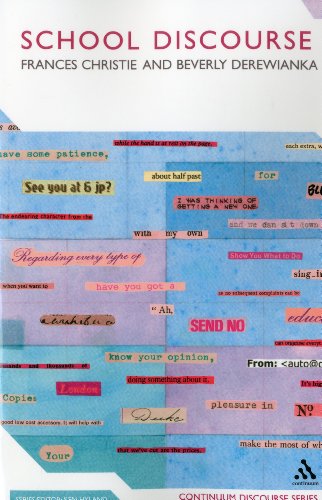

Most ebook files are in PDF format, so you can easily read them using various software such as Foxit Reader or directly on the Google Chrome browser.
Some ebook files are released by publishers in other formats such as .awz, .mobi, .epub, .fb2, etc. You may need to install specific software to read these formats on mobile/PC, such as Calibre.
Please read the tutorial at this link. https://ebooknice.com/page/post?id=faq
We offer FREE conversion to the popular formats you request; however, this may take some time. Therefore, right after payment, please email us, and we will try to provide the service as quickly as possible.
For some exceptional file formats or broken links (if any), please refrain from opening any disputes. Instead, email us first, and we will try to assist within a maximum of 6 hours.
EbookNice Team

Status:
Available4.5
19 reviews
ISBN 10: 1441131310
ISBN 13: 9781441131317
Author: Frances Christie, Beverly Derewianka
Writing development has been a key area of research in applied linguistics for some time but most work has focused on children's writing at particular ages, for example, at the early primary, late primary or secondary stage. Christie and Derewianka draw on extensive research in both primary and secondary years to trace the developmental trajectory from age 5 or 6 through to 18. Using a systemic functional grammar, they outline developmental changes in writing in three major areas of the school curriculum - English, history, and science - as children move from early childhood to late childhood and on to adolescence and adulthood. The book considers the nature of the curriculum at various stages, discussing the interplay of curriculum goals, pedagogy and developmental changes as children grow older. It also explores how emergent control of the different subjects requires control of various subject specific literacies and considers the pedagogical implications of their findings. It will be of interest to anyone involved in the writing performance of children in schools, particularly applied and educational linguists.
1. A Functional Approach to Writing Development
2. Writing Stories in Subject English
3. Writing to Respond to and Evaluate Other Texts
4. Reconstructing the Past: Recording and Describing Historical Events
5. Reviewing the Past: Interpreting, Explaining, Arguing and Debating Historical Events
6. Observing and Writing about the Natural World
7. Interpreting Phenomena of the Natural World
8. The Developmental Trajectory in Writing
school discourse
school discourse community
discourses on education book
academic discourse in elementary school
discourse in a classroom
Tags: Frances Christie, Beverly Derewianka, Discourse, across